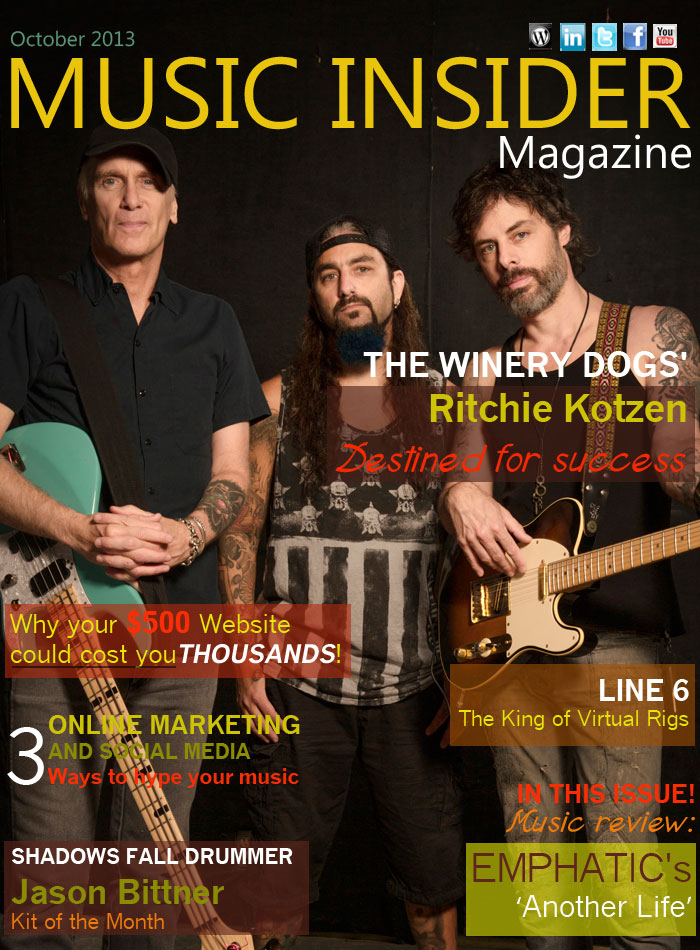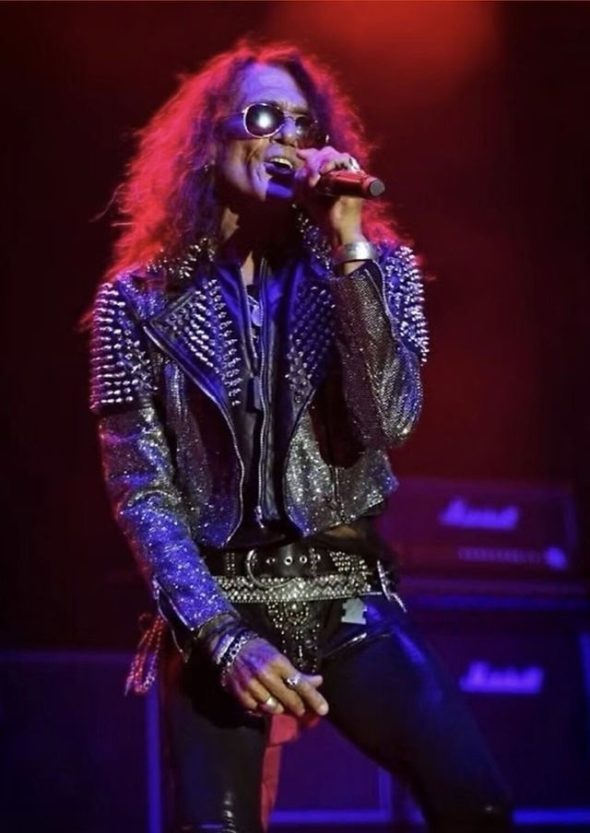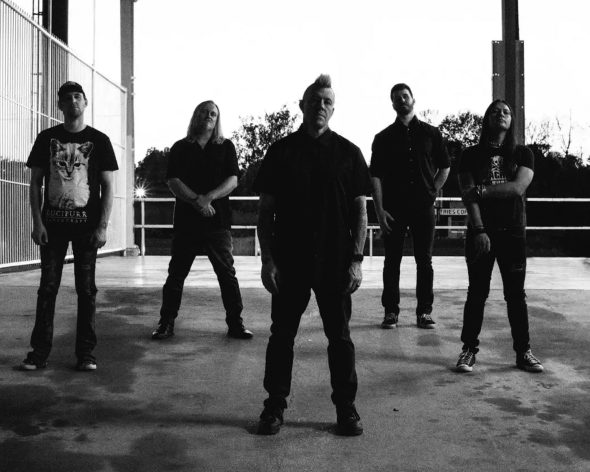Destined for success
by Brian McKinny, senior editor
The Winery Dogs are the latest power-trio from California to make a big splash with their eponymous debut album on Loud & Proud Records. With the infamous Billy Sheehan (Mr. Big, UFO, David Lee Roth, Steve Vai) on bass, Mike Portnoy (Dream Theater, Adrenaline Mob) on drums and Richie Kotzen (Poison, Stanley Clark, Mr. Big, Greg Howe) on guitar and lead vocals, this band was destined from the start to be a success.
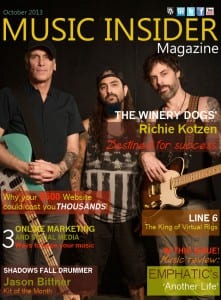
Most of the bands that have worn the “super group” title have been flash-in-the-pan groups that didn’t go beyond their first — and usually only — album. Kotzen says, “Most of those super-group bands suffered from personal/personnel issues that destroyed them before they ever got to do a second album, so that’s just not us.” (The Winery Dogs prefer “classic power trio.”)
Sheehan says in a recent Guitar World interview, “We didn’t get together to try to capitalize on what we have done before in each of our respective pasts. We wanted to do something that was straight out of the box.”
I recently met with Kotzen to find out how the band got started, how The Winery Dogs compares to other bands he’s played in and what the future holds for him and the band.
MIM: Whose idea was it to get together and form The Winery Dogs?
Kotzen: It’s funny, and I’ve been telling this story to people, but it’s really because of Eddie Trunk. Eddie’s the guy who reached out to me and told me that Billy Sheehan and Mike Portnoy wanted to form a new band, and that they wanted it to be a power trio. Eddie suggested that they call me. So one day I’m sitting here and I get a text message from Eddie, saying, “Hey, are you around? I need to ask you something.” I said, “Yeah, I’m around … What do you want?”
So he called me, and he says, “These guys are looking to do something, what do you think?”
I said, “Well, it sounds interesting!” So I got on the phone with Mike Portnoy, and it just so happened that he had been planning to come to LA on business, so when he was here, we got together in my studio, and we just started jamming. Out of that initial meeting, we ended up writing a bunch of songs together. So we realized very quickly that we had the opportunity to do something real — we had a band.
MIM: Your musical styles are quite varied. What were your earliest musical influences that affect the music you write today?
Kotzen: The bands I listened to when I was young were the bands that were popular then — Bad Company, KISS, etcetera. I was lucky that my parents were big music fans. My mother had all the albums from the cool bands — everyone from The Who to Hendrix. So we had all these records in the house, and that’s what I listened to back then. Beyond that, my father was an R&B fan, so I listened to a lot of his soul records, which were another strong influence for me.
MIM: You started out in a band called Arthur’s Museum. What kind of band was that, and how did that lead to your being signed by Shrapnel Records?
Kotzen: We released an EP when I was 15 or 16. We had written some songs, financed it ourselves and released it. We had some interest from Epic Records, or CBS. It was one of those labels that later on became Sony Records. I remember that the label wanted to hear more material from the band, and it was kind of a drag because we didn’t have anything else recorded. The guys I was playing with at the time were really focused on the cover music thing, and they wanted to keep doing covers and playing out — that was how they were making their living. I didn’t want to be in a cover band; I wanted to play my own music. Unfortunately, the whole thing fell apart — we never sent any more material.
At that point, I started to get some interest from the Shrapnel Records label, which was known for signing guitar players who went on to become members of larger bands. It became my focus to try to get the attention of Shrapnel Records, and fortunately, that’s what happened.
When I was 17, my demo tape that I kept sending to them was acknowledged, and eventually Shrapnel put me in the magazine and reviewed me. I had made a four-song demo of me playing the guitar, just instrumental songs, because that’s what the label wanted to hear back then. The magazine was the first step if the label liked you. From there, if you got lucky, Shrapnel would make a record with you. That’s what happened with that first demo, and how I got my start.
MIM: When you were playing for Shrapnel, how did you work out whom you’d play with on your projects?
Kotzen: Shrapnel records was really great at pairing musicians up, and with me, they had Steve Smith from Journey play drums and Stu Hamm, who was famous for playing with Joe Satriani, play the bass guitar. After that first project, Shrapnel really didn’t get so involved in who I picked for my projects. I met the drummer, Atma Anur in San Francisco – he played on my next two records (“Fever Dream” released in 1990 and “Electric Joy” released in 1991). The bass player from Arthur’s Museum, Danny Thompson played on my second record. As time went on, I really shifted my direction. I was meeting different musicians, and things just took off from there.
MIM: How did you get the job replacing CC Deville in Poison?
Kotzen: The band approached me about joining them. Interscope Records had bought my contract from Shrapnel Records. From there I started writing songs, and I moved out to Los Angeles to make a record, but we had a falling out — the label and me. I really wanted to make an R&B/rock record, and the label wanted me to do a heavy rock record, which I didn’t want to do. In the process of leaving the label, Bret Michaels kept calling the A&R guy (at Interscope) because he used to work with Poison, and Interscope expressed interest in me. I went out to Bret’s house in Malibu, and we met and hit it off immediately. We talked about why he wanted me in the band, and that was it, really. I joined the band. I ended up making that record and doing a tour with them. I still think that record is a very cool record, I’m very happy with what I did on that record.
MIM: In my opinion, it’s Poison’s best record. I wasn’t really into the 80s hair band scene at the time.
Kotzen: Ironically enough — it’s funny you say that — me neither! The funny thing is I used to get into huge fights when I was in my cover band back in Pennsylvania, because the guys wanted to play songs from some of the bands like that, and I didn’t want anything to do with them! What’s ironic is that as an adult, I ended up joining one of the most successful bands of that time. It may seem insane when you look at it on paper, but the real reason that it worked so well for me is because when I came into that band, they allowed me to do whatever the hell I wanted, so it wasn’t really like I was joining Poison. It was as if I had my own canvas to do whatever I wanted. They were good about that, and I think it shows on the album.
MIM: After parting ways with Poison, you went back to recording solo albums, played with Stanley Clark and joined the band, Mr. Big, among other things. Where did you find the time to start your recording studio?
Kotzen: After the stint in Poison in 1991, I went back to making solo records. From the time I left Poison to the time I started my own studio, I recorded probably 12 or 13 solo albums with dozens of different, amazing musicians. I spent my time touring, making records, going overseas and playing, mainly just being a solo artist, which is what I always wanted to do. It wasn’t until much later that I got an offer, and all this happened at one time — it was very strange — but in 1999 I released four records in a short time frame: I had a solo record called “Break it All Down;” I had a project record that I did for Shrapnel Records, a blues cover thing where we picked a bunch of blues covers, and I wrote a couple of originals; and then I joined Stanley Clark’s band, and we made a record and did a huge tour in Europe, which had us playing all the jazz festivals; I also joined the band, Mr. Big and made a record with them. So the years 1999 and 2000 are probably the busiest that I’ve ever been. It wasn’t until after the time with Mr. Big that I started the recording studio.
MIM: How did the idea of starting your own commercial recording studio come about? Was it something that you had always wanted to do, or did it just make good business sense?
Kotzen: I found a building in North Hollywood — I really bought it as a real estate investment at first, and remodeled it. I held onto it for a couple for years, and then I decided to turn it into a studio. I took all the gear that I had in my house down there, added some things and ran a recording studio for a few years. Actually, I didn’t run it — I had a guy that I hired running it for me. I recorded my records there, and I recorded a bunch of other people’s records there, too. Gene Simmons did one of his solo records there, and many big clients came through.
Right around the time when the real estate market peaked in LA, I sold the building to the guys from Blink 182. It was interesting to have the studio, but the fact is, what nobody really realizes, is that my productivity was cut in half when I moved my studio out of my house and into that building. When the studio was in my house, it was so easy to wake up, walk into the next room, and get going. When I had all my stuff at the studio, I’d have to get up, get dressed, drive down there and struggle through traffic the whole way, and finally I’d arrive and have forgotten why I went there!
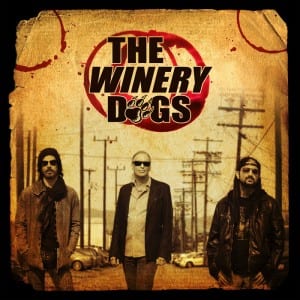 MIM: Was the studio a money saver, not having to pay for studio time?
MIM: Was the studio a money saver, not having to pay for studio time?
Kotzen: In actuality, nothing really changed, except the convenience factor was gone. I had created an extension of myself outside my house in that building. When the equipment was still at my house, it was the same situation, just in a more convenient space.
The studio paid for itself as an investment through the recording we did for other artists and bands. The building paid for itself, while my own recording time was always my own, whether there or at home, so it worked out well in that regard.
I’ve always had a studio, though. The first thing I did when I moved to LA and bought my house was to find a spot in the house to make my studio. It’s the same if you’re fixing cars and need a place to work on them and to keep your tools. I’m writing songs and making records for a living, so I need a place to do that, and I’ve always had a spot like that where I could work. Now I’m back to the home-recording-studio routine.
MIM: What was it like for you to jump into the fire when you joined Mr. Big? Was there any trepidation about filling the role that Paul Gilbert had played?
Kotzen: The opportunity with Mr. Big was interesting because my initial reaction at the time was, “Hey guys, I love your band, but I can’t do it.”
I told them that I didn’t see how it would be possible, because I was playing with Stanley Clark. They said to me, “Well, it is possible, and here’s why …” So we sat down and went through exactly what they wanted to do, including the time-frame involved, and we worked it out between us.
Musically, it didn’t feel like that much of a stretch for me, because there’s a lot of common ground with me and some of the aspects of Mr. Big. For example, Eric Martin is a singer influenced by many of the same guys I’ve been influenced by over the years. So on that level, the writing — songs like “Addicted to That Rush,” and some of the earlier rockin’ stuff I really love — weren’t much of a stretch. And even as a guitar player coming up as part of the Shrapnel group, I would listen to a lot of those guys like Paul Gilbert, Greg Howe and other signed guys (to Shrapnel Records) before me, and in my free time, I’d try to learn their stuff. Even though I had my own stuff, I wanted to know what they were doing.
When I had the opportunity to join Mr. Big, I was already very familiar with Paul’s playing, and I knew that I could not only play the old songs, but I could contribute something new to the band that they hadn’t done before. I think it was an interesting marriage, and the records that we made — we made two studio records — they’re very similar in some ways to Poison, in the sense that when I joined Poison, they didn’t say, “Hey, you’ve got to play like CC Deville.” They said, “We want you to be Richie Kotzen.”
And when I joined Mr. Big, it was the same thing. They could’ve hired anybody. There are lots of guys in LA who are amazing players and can play technically anything you can think of, but that’s not what they wanted. They wanted someone who had his own personality to join the band. I really enjoyed working with those guys.
MIM: How is the dynamic different from some of the other bands you’ve played in?
Kotzen: The reality for me is that it’s not really a stretch for me to play in a power trio like this, because that’s what I’ve been doing on all my solo albums. For me, the power trio is my thing, my forte. It’s instinctive for me, playing in this format — it’s my home. For Mike, it’s a new thing, because he’s always played in a larger band and in a different style. He’s used to a more progressive, more orchestrated rock-and-roll-type thing. With The Winery Dogs, this is more loose and free, with a lot of improvisation. Even though we’re playing the same songs that we love, when we get on stage, we mix it up a little bit, we don’t play it exactly the same way every time. It’s a really interesting band.
The difference between this trio and other trios is obviously that I’m playing with guys who are known for doing their own thing. That changes the dynamic, because now we have Billy, who has his whole style, and then Mike has a very distinct style, and of course, I do what I do. But, having said that, what I think is very cool about this band, especially on the record, is that when you hear it, even though it sounds like a new band, you know that’s Billy Sheehan playing bass, and anyone who’s heard my solo records that it’s Richie Kotzen playing, and it’s the same with Mike Portnoy and his drumming. And so I think that’s kind of cool, because it would have been very easy for someone to get lost with people fighting for their own identity. This thing came together the way it did, because we play exactly how each of us wants to play, and it still sounds like a new band.
MIM: Who writes the lyrics? Is it a collaborative effort?
Kotzen: That would be mainly me, and it’s really because I’m the lead singer. I’ve never done a record of original material where I’m singing someone else’s lyrics; that’s not really my thing. However, I did do one song like that on this record. There’s a song on the record called “You Saved Me,” and Mike wrote the lyrics, but the way this record is made, you’re right. Most of the songs were written with us jamming in a room with the music, and then later I’d go back and finish the songs with the lyrics and the melodies.
Occasionally, the guys will throw some ideas at me — I know there’s a couple of things where Billy had ideas for the lyrics, and they were good ideas so we implemented those … And there were some songs that I had written prior to actually knowing about The Winery Dogs, and I presented a bunch of songs to the guys that I thought might be good for us to do, and in the end, I brought in maybe five songs I had written — some that were finished, some that were almost finished, and we turned those into The Winery Dogs songs.
MIM: What has been the response to the album’s release in Europe? What are the differences you’ve noticed between European and American audiences when you’ve toured there before?
Kotzen: What I’ve found, in the end, people are very similar. They all want to enjoy the music and have fun. For example, if you do a show in Japan, the people are much more reserved, much quieter during the song performances. They usually wait ’til the end to applaud; whereas, if we’re playing in Argentina, not only do they start singing the first line of the verse, sometimes they’ll start singing the guitar riff! We have a song called, “I’m No Angel,” and we started the intro, I started playing that riff, and the audience was already singing the melody — it was unbelievable! To answer the question, the common thread is the music. Everyone’s there to get involved and celebrate the music.
MIM: Do you plan to add more shows to your tour, perhaps the East Coast, or the Midwest, before you take some time off for the holidays?
Kotzen: That’s definitely something we’re looking to do. Right now, we’re adding shows — I’m not really following our bookings that closely — I go where they send me — but the management has been doing that, I know. We’re doing just a short West Coast run, but there’s been talk of sending us back to the East Coast again, so it’s very possible this could end up being a very big tour. Hopefully, we’ll get to play some good shows, make some new fans, and have a good time doing it.
Author’s note: The Winery Dogs are currently on tour, playing shows on the West Coast in California, in the Pacific Northwest, and then heading to the Midwest before moving up the Eastern seaboard. They are continually adding show dates to their tour, so if you don’t find them at a city near you, keep looking at their show page for updates. Visit http://www.thewinerydogs.com/ for the latest information on tour dates.

